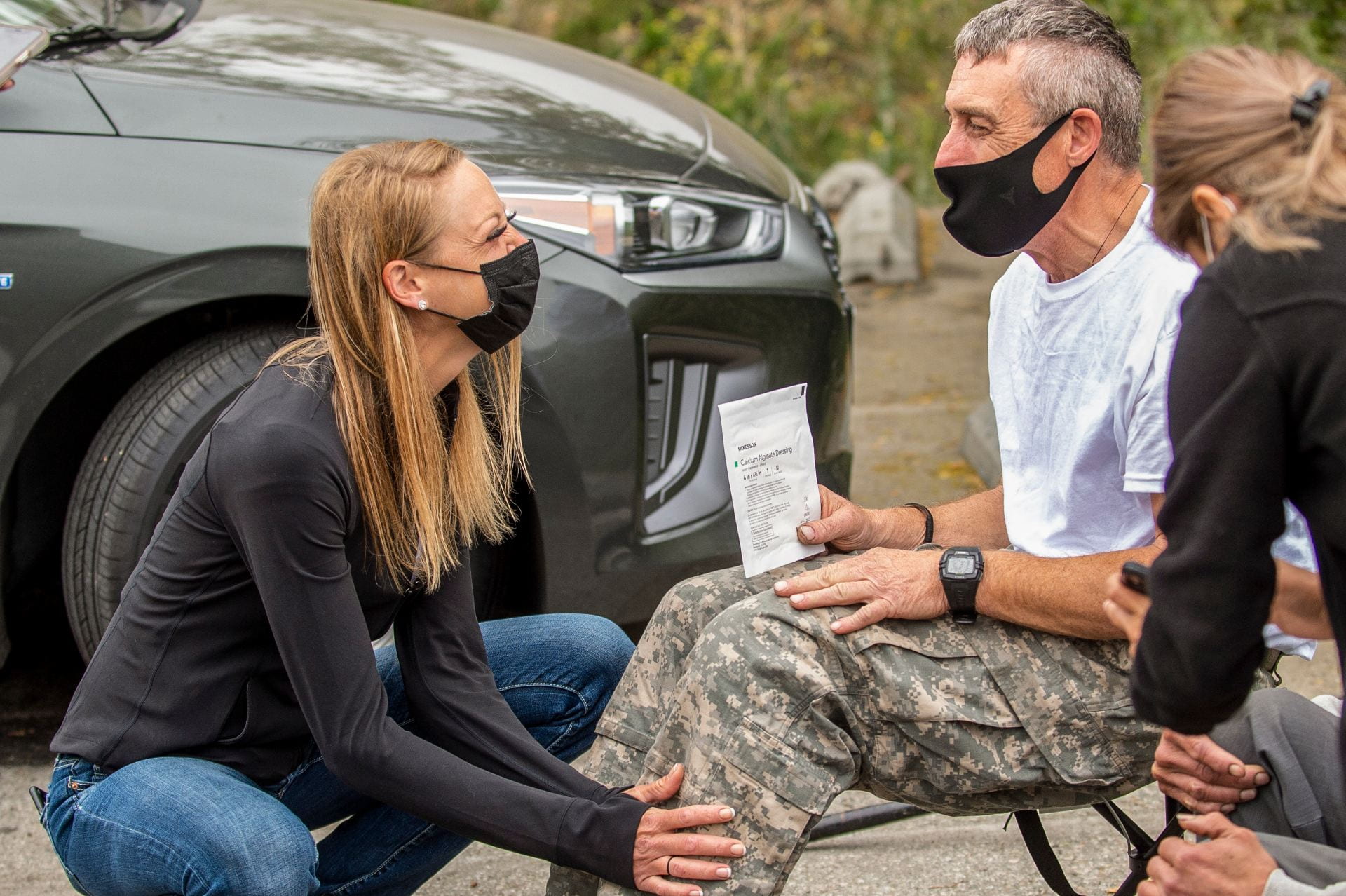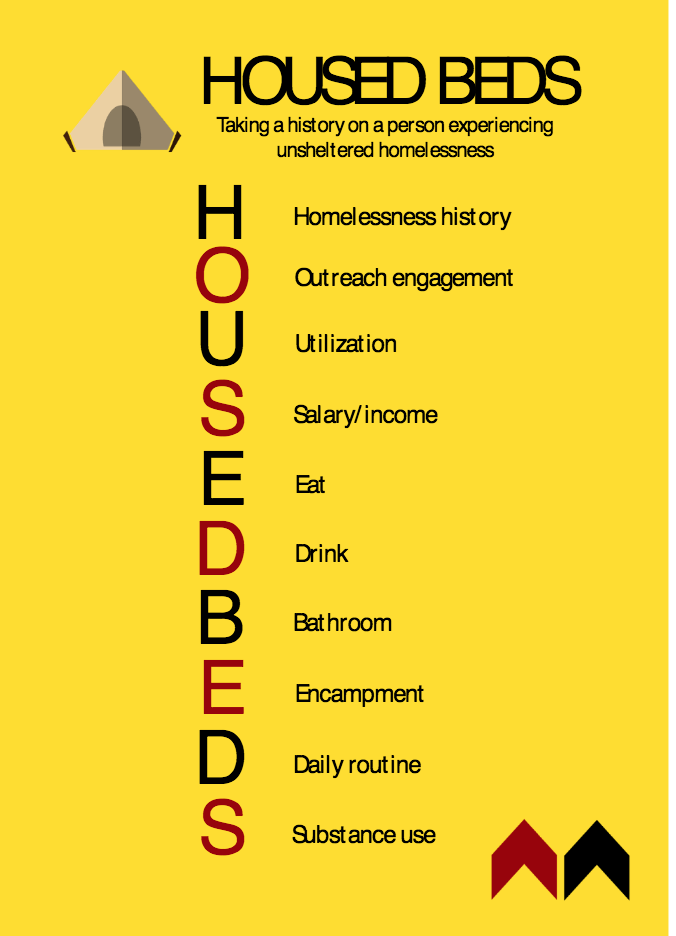Researchers from the street medicine team at the Keck School of Medicine of USC have developed “HOUSED BEDS,” the first published tool designed specifically to help outreach teams clearly assess the situation of unsheltered homeless patients. This memory-prodding acronym can help clinicians ask high-yield questions and gather vital information necessary to providing quality care tailored to the needs and lifestyles of patients living on the street.
“An important first step in helping homeless patients is to clarify the social, mental and physical challenges they face living on the street that can vary drastically between individuals,” said lead researcher Corinne T. Feldman, MMS, PA-C, clinical instructor of family medicine at the Keck School. “HOUSED BEDS empowers clinicians and students to incorporate information like access to sources of clean water, food and other services into a homeless patient’s medical history.”
“HOUSED BEDS” stands for:
Homelessness: Patient’s history of homelessness
Outreach: Who else is providing services
Utilization: How patient uses health care, social services and judicial system
Salary: Kinds of financial resources
Eat: Sources of food and access to it
Drink: Sources of clean water and access to it
Bathroom: Access to toilet
Encampment: Sleeping environment
Daily routine: How to minimize competing priorities
Substance use: History of usage
This acronym is designed to spur clinicians to ask questions they may not have been trained to ask, which can reveal issues that directly impact a patient’s health.
“Developing an effective treatment plan depends on a complete and accurate patient history,” said Brett Feldman, MSPAS, PA-C, clinical assistant professor of family medicine and director of street medicine at the Keck School. The street medicine program administers care to homeless individuals in Los Angeles County, which is home to nearly 45,000 unsheltered individuals. “Even patients in traditional clinic settings omit information, sometimes unintentionally, that could be relevant to a diagnosis, so it’s important for outreach teams to have a means of understanding each homeless individual’s unique situation,” he added.
Learn more at https://osf.io/2qb3h/

